Content Sections
By Robert Verkerk PhD,
Founder, scientific & executive director, ANH-Intl
How open is your mind? What are your thoughts on Theresa May or Donald Trump as leaders? Do you believe they’re good or bad leaders? Do you believe the pre-emptive invasion of Iraq based on concerns over an unverified stockpile of weapons of mass destruction was just or unjust? Do you believe that homeopathy works?
As odd as it might sound, these were among some questions posed at the Royal Society of Medicine last Saturday at a ground-breaking conference on the science of water. The conference was organised by integrative medicine consultant Lord Kenneth Ward-Atherton alongside the British Homeopathic Association. One of its overarching aims was to explore where some of the brightest, relevant minds were at when it came to looking at the plausibility or otherwise of mechanisms explaining homeopathy’s claimed or proven clinical effects.

Lord Kenneth Ward Atherton presenting at the New Horizons in Water Science conference, Royal Society of Medicine, 14 July 2018
New horizons in water science
At the conference, five professors presented their views on the science of water, the single substance on which life on Earth is most dependent. Any synthesis of the eminent professors’ views, assuming the research that underpinned them is valid (which I believe it is), would bring you to the same conclusion: what we’re taught about how the human body ‘works’ right up to tertiary education level, including in medicine, is at least in part misguided or wrong. It’s noteworthy that two of the professors were Nobel laureates and the other three head up very active laboratories with solid publication records.
No surprise, none of the scientists opposed homeopathy. Quite the reverse, they all contributed pieces of the jigsaw that could help create a more complete picture of the mechanisms that drive this 200-year-old system of medicine. And almost not a minute too late – given that skeptics have been working overtime for some years to banish homeopathy from the UK’s NHS. That’s despite a significant body of evidence pointing to a clinical effect that goes beyond placebo and strong public demand. More than that, it’s also in flagrant disregard for the fourth principle of the NHS Constitution that dictates that “NHS services must reflect, and should be coordinated around and tailored to, the needs and preferences of patients.”
I was honoured to accept an invitation to speak alongside the professors at the conference. My remit was to look at the broader picture around homeopathy and how people’s beliefs can be constrained or affected by others. In line with the views of Dr Peter Fisher, Director of Research at the Royal London Hospital for Integrated Medicine, Europe’s largest centre for integrative medicine as well as being the Queen’s homeopath, it is wrong to claim (as some skeptics do) there is no evidence for a clinical effect beyond placebo. A further look at the totality of available evidence, and its manipulation in some meta-analyses, can be found in a peer-review journal Complementary Medicine Research (2013) by Prof Dr Robert Hahn, Research Director, Södertälje Hospital and Associate Professor at the Karolinska Institute.
We suggest therefore that skeptics refuse to accept any possibility of the plausibility of a beneficial effect relating to the practice of homeopathy for irrational reasons. These may include one or more of the following:
- They don’t look at the available clinical evidence and so refuse to accept there is a demonstrated clinical effect beyond placebo
- They have no experience of receiving homeopathic treatments
- They are not prepared to recognise that homeopaths, like all good health professionals, might help patients in ways that go beyond merely the prescription of a medicine (in the case of a homeopath, a homeopathic one)
- They don’t acknowledge evidence of benefit of homeopathic remedies in animals
- They do not recognise a consistent logic structure that explains the observed effect because they cannot accept any evidence of a mechanism for ultra-diluted solutions which may not include any remaining bioactive molecules as used in homeopathy
And the professors spoke…
Water, we already know, is anomalous scientifically. It does a bunch of things we shouldn’t expect of it. Take its unusually high melting and boiling points, considering it is a Group 6A ‘hybride’ of the Periodic Table. They’re not just a little bit higher, but around 100,000 to 150,000 times higher than expected by extrapolation. It also exists in multiple different solid forms, such as the crystalline ice-five or ice-seven forms, or as amorphous ice, all of which change with pressure. As you’ve realised, it’s also less dense in solid than liquid form – water gets less dense unlike other compounds when it’s cooled below 4C. Did you notice your ice doesn’t sink to the bottom of your glass?
So, what did the assembled professors have to add?
All the presentations were filmed and we will be pointing our readers to them as soon as they become available, which we’re told by the organisers will be in the near future. In the meantime, we have distilled what appear to be some of the most important mechanistic theories that underly homeopathy. We provide them for you in the chronological order in which they were presented, as follows:
- Professor Emeritus Brian Josephson (Theory of Condensed Matter, Cavendish Laboratory, University of Cambridge) was awarded his Nobel prize in Physics at the age of 22 for his pioneering work on superconductivity and quantum tunnelling. Fifty six years on, he set the scene for the conference by suggesting that the current ‘matching’ theory for how two molecules (e.g. bioactive molecules and receptor molecules) communicate is incorrect. He argues that electromagnetic signals and quantum theory provide more likely or at least additional explanations.
- Professor Luc Montagnier was co-awarded a Nobel prize in Physiology or Medicine in 2008 for the discovery of HIV. He argues that electromagnetic signals can be transduced in highly diluted aqueous solutions originally containing some bacterial or viral DNA. Montagnier has found that agitation of preparations during their dilution (= succussion in homeopathy) was found to be essential for this transduction.
Professor Montagnier (left) and Dr Peter Fisher (right) at the conference, Royal Society of Medicine, 14 July 2018
- Professor Jerry Pollack (Pollack Laboratory, University of Washington, Seattle) showed that water within living systems largely exists not as H2O, but as structured matrices composed of H3O2 molecules (‘exclusion zone water’ or ‘EZ water’, for more information, see separate article) 'EZ water': the water that makes us and all other life . This structured water is negatively charged and acts like a battery that can do work within the body. Along with ethanol that can also form exclusion zones, EZ water also has a great capacity to retain information; this could potentially be exploited and could surpass the data storage capacity of today’s silicon ‘chips’.
- Professor Vladimir Voeikov (Chair of Bioorganic Chemistry, Faculty of Biology, Lomonosov Moscow State University) and his lab have shown how signatures could be left by biologically active substances as high-energy, reactive oxygen species (ROS). These bioenergetic signals may represent what homeopaths or herbalists refer to as ‘vital force’ and may contribute to the observed property of ‘memory’ in water.
- Professor Voeikov also discussed the work of his colleague, Professor Alexander Konovalov (Russian Academy of Sciences). The work suggests that memory could be retained by nano-sized assemblies of water molecules (referred to as ‘nanoassociates’) created around bioactive molecules long after their removal.
- Adding to the debate, head of the Department of Chemical Engineering, Indian Institute of Technology, Professor Jayesh Bellare explained that his team are able to detect nanoparticles of the starting materials or their aggregates in even the most diluted homeopathic products (manufactured according to the Homoeopathic Materia Medica). He attributes some of the effects (even if they were electromagnetic or quantum in action) to these nanoparticles.
ANH’s input
It was with great interest that I accepted an invitation to speak at the conference, mid-afternoon.
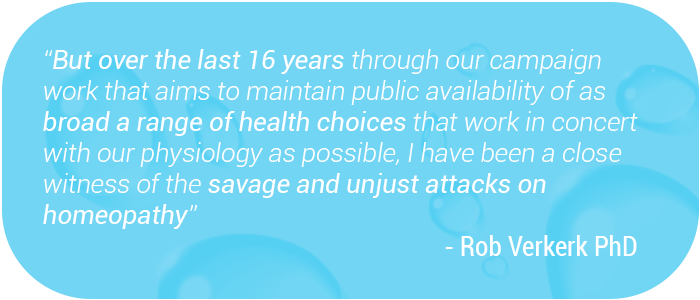
In almost every way, I was the odd one out. I am not a specialist in the water-related sciences, in ultra-dilutions or in homeopathy. (What’s more, I don’t have the professorial ‘hair thing’ going on). But over the last 16 years through our campaign work that aims to maintain public availability of as broad a range of health choices that work in concert with our physiology as possible, I have been a close witness of the savage and unjust attacks on homeopathy. It’s a system of medicine that has not only been proven to be of benefit, it has been observed by homeopaths and patients alike the world over to deliver clear benefits (doctors and practitioners rarely persist for long periods of time with medical approaches that consistently fail their patients).
Rob Verkerk PhD presenting at the conference, Royal Society of Medicine, 14 July 2018
Given our work on helping to co-create a sustainable system, this is where my own presentation led, after suggesting that we should perhaps rethink common approaches to medical rationalism that often lack either rationality or consistency. While we planned to release our position paper, A blueprint for health systems sustainability in the UK later this month, we have decided to delay release until September, given the current instability and attention required by the UK government over Brexit. So more on that in just over a month.
So what can we take home?
Many anomalies of water have long been known and it seems we’re just meant to accept the anomalies and not concern ourselves that there are few in the way of adequate explanations.
The professors raise additional anomalies, which some will believe and others will choose to ignore. What’s very interesting is that there are persistent efforts in society to marginalise scientists with a contrary view to the status quo.
French immunologist Dr Jacques Benveniste (in whose memory the conference was held) was such a scientist. In attempting to demonstrate that water can retain a memory of biologically active substances even when they are no longer present, the orthodoxy can come crashing down on you. They can close down your lab and kick you to the fringes where none of your supporters will have a significant voice. Benveniste died prematurely at the age of 69, still with a passion to uncover more about non-molecular mechanisms of communications within and between cells. He knew he was onto something but didn’t live long enough to get to the bottom of it. This conference was something of a celebration of what has happened in the wake of Benveniste’s discoveries, following his death in 2004 it showed just how elements of the science have moved on, regardless of establishment pressure against this kind of research.
Whatever the opponents of homeopathy argue, the clinical effect has been amply demonstrated. Could this new evidence from the science of water reveal a likely, albeit, complex mechanism – or possibly more likely – a series of parallel mechanisms? And could an understanding of these mechanisms provide the missing piece in the logic pathway required to shift the medical establishment’s perceptions about the usefulness of homeopathy for human or animal health?
This kind of sea change is urgently needed if we are to avert the extinction of homeopathy in the NHS, the veterinary sciences and beyond, caused by a lack of appetite among some for the ‘scientific truth’ - regardless of its consequences.
And before you ask me to define ‘scientific truth’….I like the following definition: “a state of minimum discrepancy between theoretical prediction and observed reality.”




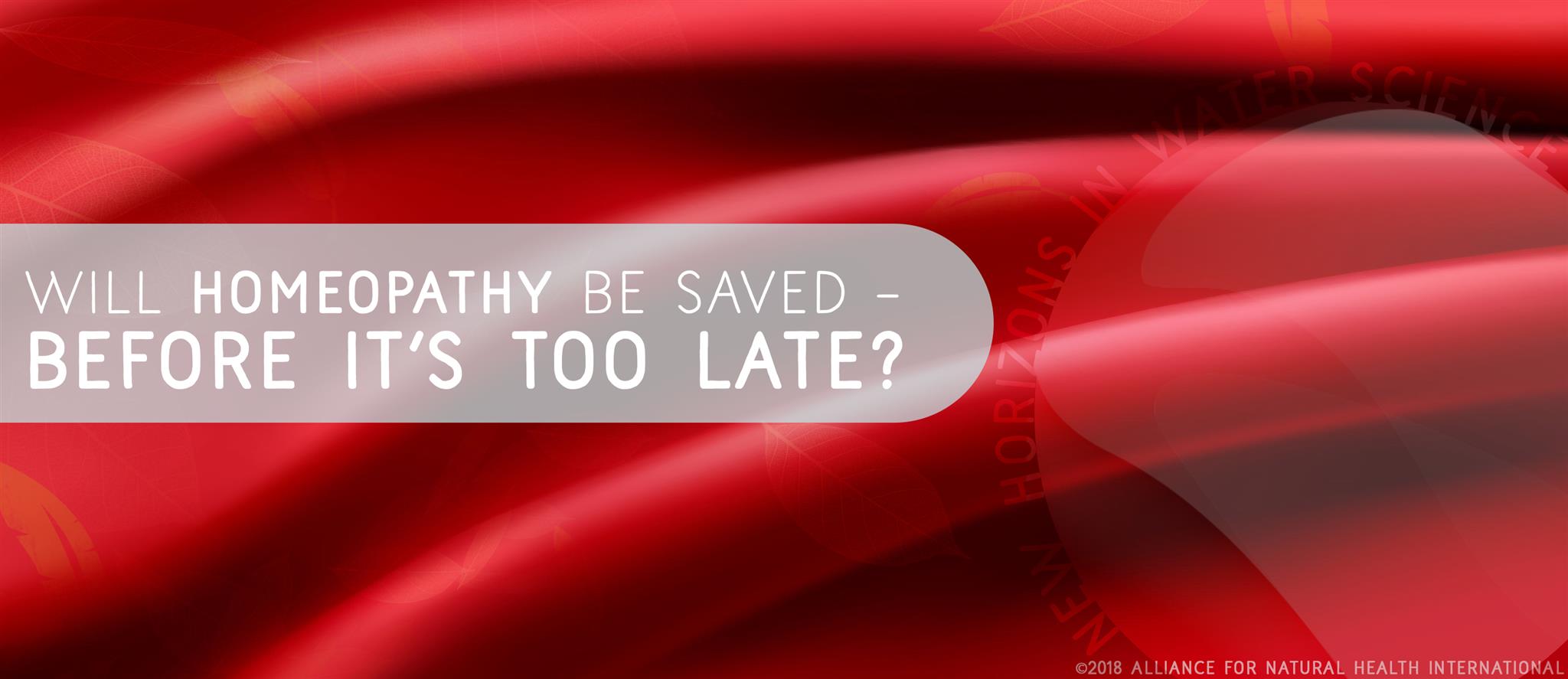
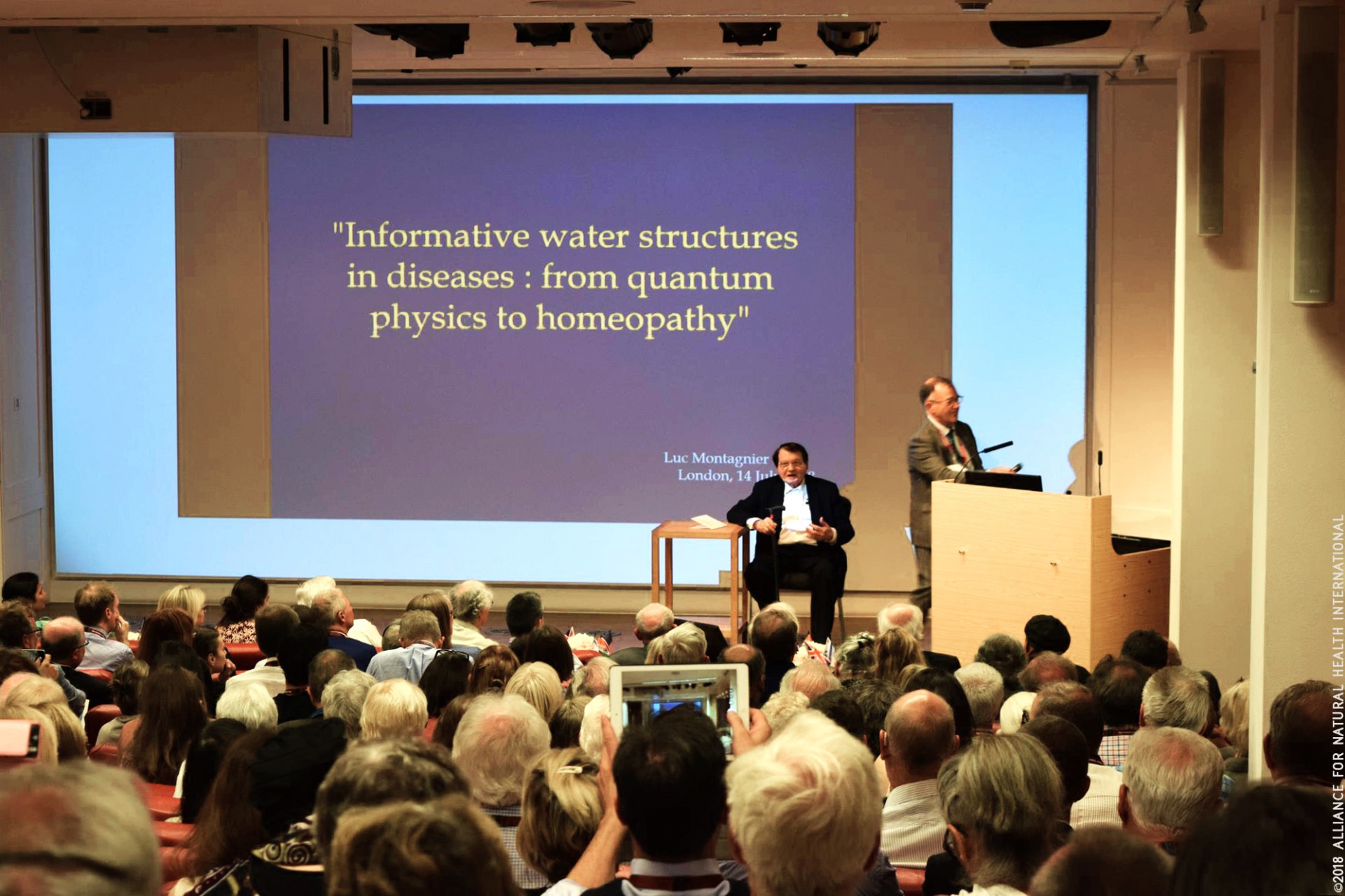
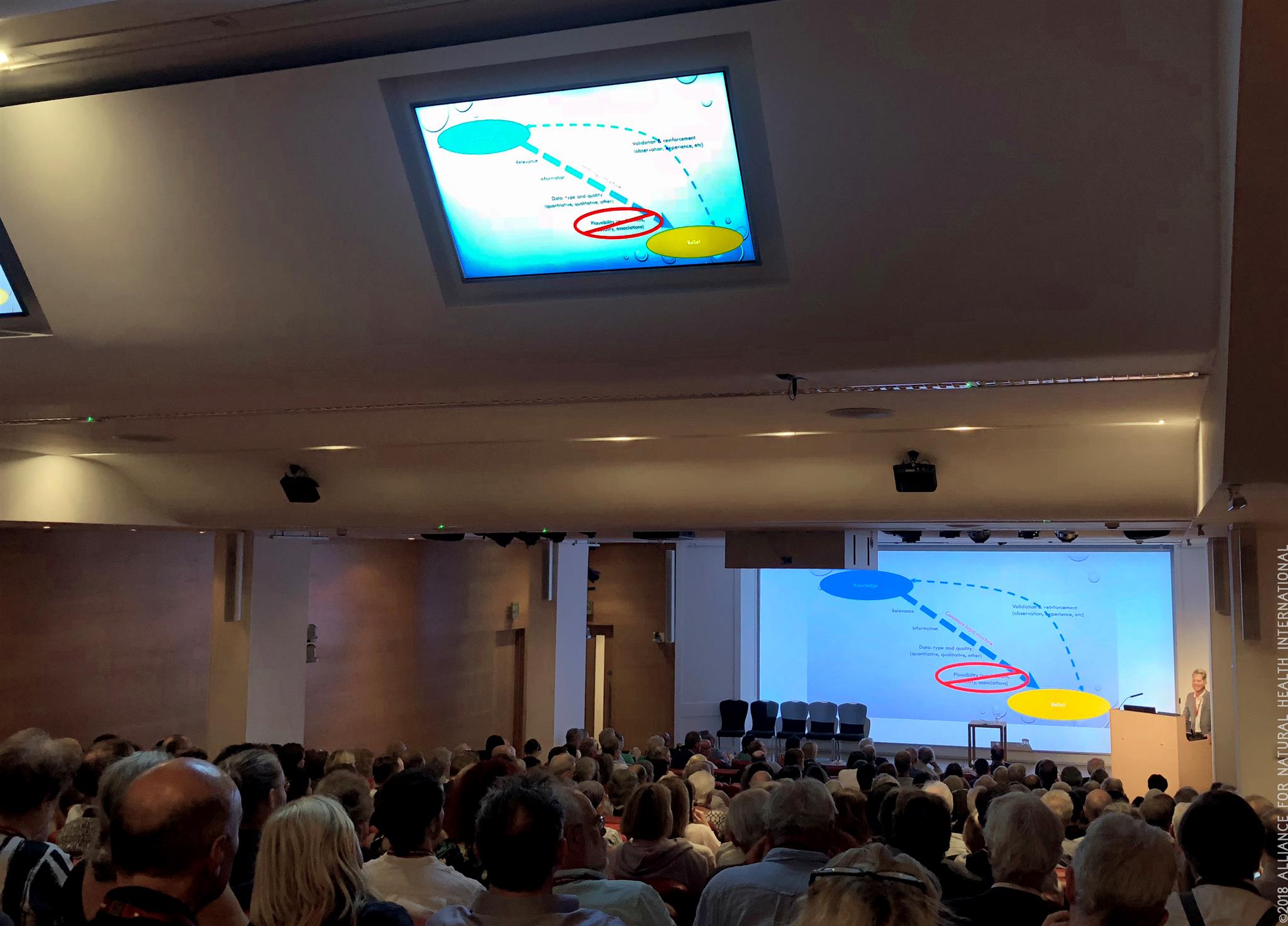
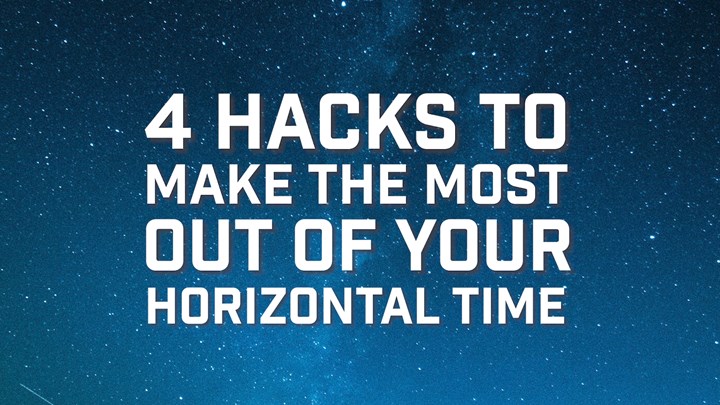

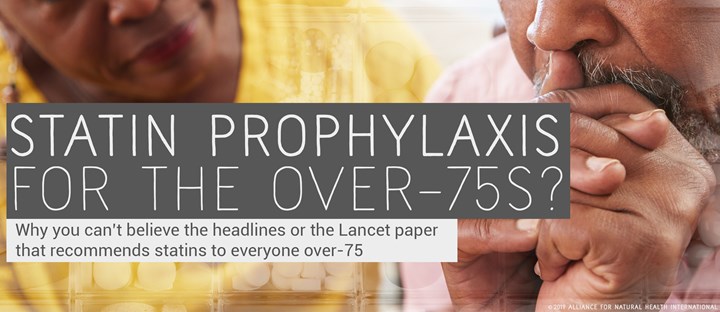
Comments
your voice counts
18 July 2018 at 11:58 pm
Very positive article! Let's hope it's not too late...
However, just a small criticism - in this sentence "agitation of preparations during their dilution (= succession in homeopathy) was found to be essential for this transduction", please could you correct "succession" and make it "succussion"?
The error is probably to do with auto-correct, but for anyone reading it who isn't aware of what succussion is, they may be confused if they think it's succession!
19 July 2018 at 11:55 am
Great spot Vanessa, thank you! We absolutely wrote succussion so this could be an issue of predictive text. It'll be fixed immediately!
19 July 2018 at 7:32 am
It would be a milestone advancement if the action of homoeopathic medicines can be proved with the theory of "WATER MEMORY".In fact the only aspect of Homeopathy that needs to be answered now with respect to proving its scientificty is the answer to the question="HOW";which I believe this explanation justifies to some extent atleast. Eventually the ultimate and supreme principle of Homoepathy="Similia Similibus curenter";the mainframe of homoeopathy can actually be made universally acceptable not only among Homoeopaths but to a wider community including General public@ Large.LONG LIVE HOMOEOPATHY.
19 July 2018 at 1:13 pm
Yes - human curiosity is such that some will refuse to accept something they can observe or experience if they don't understand it. That's why we're intrigued by magic. The eminent professors between them offered some fascinating and important findings that many (but usually under-funded) research groups are trying to put to the test. We need unified hypotheses that can be tested, along the lines of this: orderliness can be imprinted at the quantum level into water, ethanol or other substances and this provides a persistent energetic (e.g. electromagnetic) signal that mediates observed effects. Homeopathy is interesting because it forces society to address the issue in ways that are non-linear and not reductionist, compartmentalised or over-simplistic.
19 July 2018 at 1:13 pm
Yes - human curiosity is such that some will refuse to accept something they can observe or experience if they don't understand it. That's why we're intrigued by magic. The eminent professors between them offered some fascinating and important findings that many (but usually under-funded) research groups are trying to put to the test. We need unified hypotheses that can be tested, along the lines of this: orderliness can be imprinted at the quantum level into water, ethanol or other substances and this provides a persistent energetic (e.g. electromagnetic) signal that mediates observed effects. Homeopathy is interesting because it forces society to address the issue in ways that are non-linear and not reductionist, compartmentalised or over-simplistic.
19 July 2018 at 9:28 am
After reading Professor Vladimir Voiekov's abstract
(https://www.ncbi.nlm.nih.gov/pubmed/21384328)
I allow myself to give you my thoughts on the type of electromagnetic waves that could be brought into play by the ROS.
Indeed, these ROS are paramagnetic structures, possessing one or more single electrons. They are therefore magnetic dipoles. Plunged into the Earth's magnetic field, this dipole reveals a splitting of all their energy levels, thus allowing between the levels formed the appearance of the phenomenon of Electron Paramagnetic Resonance.
By applying the common relation to the NMR and the RPE ν = γH, where γ is the gyromagnetic ratio of the electron, I find frequencies ν of the order of 100 kHz. It must surely take into account coupling phenomena ..., but it is not really far from the frequencies mentioned by Benveniste.
19 July 2018 at 1:20 pm
Very interesting, Jean. And given the background of EPR and ESR in Russia, it is no surprise that Russian scientists are among the leaders in the measurement of energetic signals associated with imprinting at the quantum scale.
21 July 2018 at 8:43 am
I even wonder if this is not a means of communication between cells that we have not thought of yet, but which seems to exist, since the EPR exists. Is it essential to life? If so, can we then leave the vicinity of the earth?
26 July 2018 at 4:21 pm
If the ROS permanently emit such electromagnetic waves (EPR), they can be absorbed by magnetic dipoles that can resonate with them. In doing so, the internal cellular energy is modified and an evolution of the metabolism can take place.
In connection with homeopathy, what could these dipoles be?
Two experimental data could provide lighting.
First, the work of Chikramane et al:
Why extreme dilutions reach non-zero asymptotes: a nanoparticulate hypothesis based on froth flotation.
https://www.ncbi.nlm.nih.gov/pubmed/23083226
which would indicate that whatever the energization, the material would remain present in the form of nanoparticles.
Then work more spread over time and taken over by Demangeat:
Nanosized solvent superstructures in ultramolecular water dilutions: twenty years' research using proton water NMR relaxation.
https://www.ncbi.nlm.nih.gov/pubmed/23622259
which show that the NMR relaxation time of the water protons varies with the dynamisation of the substances. The theory also shows that this relaxation time is strongly influenced by very small quantities of paramagnetic structures (Spectroscopie par résonance magnétique nucléaire, Claude Chachaty – Techniques de l’ingénieur 1984 , §2,32).
From these data, I formulate the following hypothesis: the dynamisation causes the tearing of certain well-defined electrons of the nanostructure, giving a charged but stabilized structure. This consists in the presence of magnetic dipoles characteristic of the structure and the level of the dynamisation, which can absorb by EPR, thanks to the earth magnetic field, the continuous emissions of the ROS.
19 July 2018 at 11:18 am
Thank you.
19 July 2018 at 5:22 pm
It was a great event. Stimulating and inspiring. The conflict between homeopathy and conventional medicine has been ongoing since Hahnemann's time.
I just hope that the result of attempting to destroy homeopathy will have the same result as when the American Medical Association tried to destroy chiropractic. It united and stimulated the profession to the point that it is a huge part of healthcare in the USA.
19 July 2018 at 5:49 pm
Great article Rob, sorry I did not get a chance to come and say hello at the conference. Independent researcher Professor R. G. Hahn, an internationally recognised expert in assessing medical research and meta-analyses, closely scrutinized the clinical trials on homeopathy and reached this verdict: “To conclude that homeopathy lacks clinical effect, more than 90% of the available clinical trials had to be disregarded." More people will catch up. We need to keep communicating and get better at getting the message out there - there is something in succussed ultrasound high dilutions, the science is robust and clear.
20 July 2018 at 3:48 pm
Thank you for breathing life back into the argument. The questions about water that I challenge the pseudo–sceptics with are "Why is water wet [if oxygen and hydrogen at the same temperature are usually dry]?" and "How does a glass of water know that there is another glass alongside it, to make a water bridge?"
The only pseudo–skeptic response I get is 'red herring.'. You have given me more hope that real science will outrun its persecutors and that the winning post is near.
21 July 2018 at 8:31 pm
Your link to "available clinical evidence " re-linked to Peter Fisher.
It would be better to link to, say
https://www.ncbi.nlm.nih.gov/pubmed/24200828
>> https://www.karger.com/Article/Pdf/355916
https://www.unimedica.de/vegan-gesunde-ernaehrung-blog/wissenschaftlicher-beitrag-beweise-fuer-die-homoeopathie
or
http://safe-medicine.blogspot.com/2015/09/the-contribution-of-professor-edzard.html
Ernst is still pushing the old lies in his blog https://edzardernst.com and continues to push the fallacy that lack of suitable evidence means lack of effect.
27 July 2018 at 6:01 pm
Will - excellent advice to add Robert Hahn's views too. We have amended the article accordingly! Thanks for the input.
22 July 2018 at 7:51 am
Superb article and very timely. The moment iI hear a 'scientist' state that something is a 'scientific fact,' it becomes clear to me that they are not a scientist at all!
23 July 2018 at 9:58 pm
Im not a homeopathist, before I was very critical against homeotherapy and fan of "The amazing James Randi", in this time I considered all form of homeopathy as quackery or worse, a fraud against health. Soon, I've decided appply an excercise to debunk homeopathic claims consulting the other side of the coin (in the moment I only have readed skeptikal book), like homoeopathic books and papers published in journals of the topic. However, I found another world that defies the skeptical bias against the homeopathic community. Thus, for six years finally convinced myself that not all homeopathy is "bunk". Two years ago, my review (unfortunately in spanish) about the main beliefs by skeptikal activists in homeopathy was published in an indexed, but local, peer reviewed journal. I never imagined that this paper will attract great deal of attention. Shockingly, I found a lot of bias, lies, deliberate fraud (historical manipulation) and some papers with plagiarized sentences published by skeptical activists. In a nutshell, my findings can be considered as an independent replication of the Hahn's and Lionel Milgrom's analysis, but situated in the spanish and latin american context. Probably, this was the first report published in spanish language stressing the importance of the critical analysis about mass media discourses between homeopathy and skeptikal organizations. If you wish, the link of paper can be consulted below:
https://www.researchgate.net/publication/313838210_Diez_razones_para_no_creer_en_la_homeopatia_Analisis_critico
25 July 2018 at 3:39 pm
thank you for the informations.
they will certainly be useful to me.
25 July 2018 at 8:03 pm
Homeopathy is a fact. Nothing fake can survive for more than 200 years and keep growing. Every Homeopath has scores of cases cured by Homeopathy which have no other explanation except Homeopathy curing it. TO DECLARE ANYTHING UNSCIENTIFIC WITHOUT SCIENTIFICALLY ANALYSING IT IS THE MOST UNSCIENTIFIC THING TO DO. Today’s science is incapable to explain Homeopathy but the is not far when Homeopathy will be explained and this fantastic article is a milestone in this direction,
Kudos,
Dr Alok Mehra- Jaipur, India
07 November 2018 at 11:35 am
Two versions of my lecture are available on line, one with my own audio recording and the slides, at https://www.youtube.com/watch?v=V43I1Y__tkQ, and the official conference video at https://www.youtube.com/watch?v=PsPN0Sc4owo.
08 November 2018 at 8:09 am
Thanks for sharing Brian. It's much appreciated.
Warm Regards
Melissa
Your voice counts
We welcome your comments and are very interested in your point of view, but we ask that you keep them relevant to the article, that they be civil and without commercial links. All comments are moderated prior to being published. We reserve the right to edit or not publish comments that we consider abusive or offensive.
There is extra content here from a third party provider. You will be unable to see this content unless you agree to allow Content Cookies. Cookie Preferences